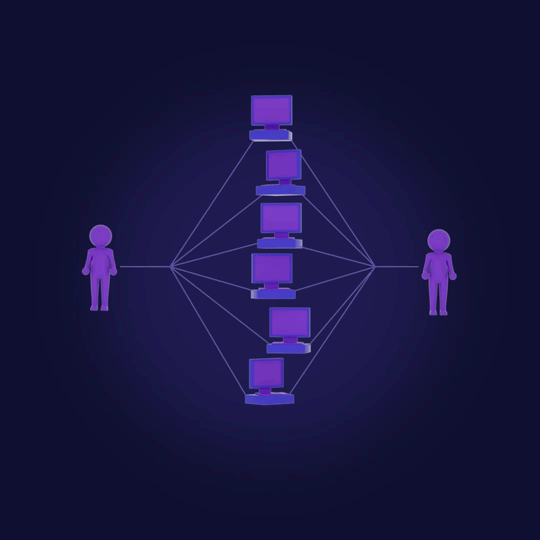Cryptocurrency transactions
When we want to review how funds from our bank account have been used, we look at the transfer history at our bank. We trust our banks not to counterfeit or manipulate our money. We trust them to deliver our remittances to the recipients. If there are problems or incorrect transactions, it is the bank’s responsibility to rectify the situation or resolve the error.
When using cryptocurrencies, the elements of centralization and trust are removed. This means there is no third party to rely on for these things anymore. When a request for a transaction is submitted, the decentralized network will verify, confirm and record it accordingly on the blockchain. Transaction records are public and immutable on the blockchain. There is no need for trust, as any individual can view them at any time. Although it is not impossible to change the transaction ledger, its cryptographic security is almost impossible to crack.

Since there is no need for a central authority, users do not need to identify themselves when transacting with cryptocurrencies. All they need to confirm it, are the public and private keys, which for now can be thought of as an account number and a password. This means that cryptocurrencies can be used and received by anyone, anywhere, and at any time around the world.
Transfers are not limited to the working hours of the bank, which can still cause headaches in today’s times. The only thing an individual needs for a transaction is an internet connection. Cryptocurrencies thus enable faster and simpler transfers, especially international ones.

Eliminating the role of banks means that a bank account and associated contributions are no longer necessary. For example, a bank transfer can cost up to 30 euros, while cryptocurrency transactions usually cost from a few cents to a few euros.
At the same time, cryptocurrencies are becoming an increasingly popular method of payment. The number of places that accept them is increasing, and recently more and more payment cards have appeared, with which people can pay for material goods and services.



